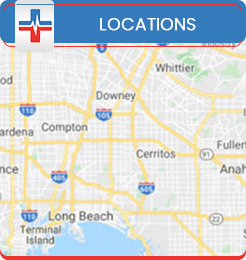Viral Gastroenteritis (Stomach Flu): Symptoms & Causes
Stomach flu, also known as viral gastroenteritis, is a digestive tract infection caused by a virus. Gastrointestinal symptoms and signs include loose stools, cramping in the stomach, nausea, vomiting, and occasionally a fever. It can be transmitted by getting into contact with contaminated surfaces or infected individuals. Dr. Usha Rani K. Reddy, M.D., at Reddy Urgent Care provides guidance on symptom management and suitable treatment. For more information, contact us or schedule an appointment online. We have convenient locations to serve you.


Table of Contents:
What is the most common cause of viral gastroenteritis?
What are the signs and symptoms of gastroenteritis?
How long does stomach flu gastroenteritis last?
What are the stages of the stomach flu?
Viral gastroenteritis is caused by a group of highly contagious viruses, including norovirus, rotavirus, and adenovirus. These viruses are easily transmitted through contaminated food, water, or surfaces, or by close contact with an infected individual’s vomit or stool.
Norovirus is the most reported cause of stomach flu in adults, while rotavirus is the leading cause in children under the age of five. Adenovirus is less common but can also cause gastroenteritis, particularly in young children and people with weakened immune systems.
Symptoms of viral gastroenteritis typically include nausea, vomiting, diarrhea, abdominal pain, fever, and headaches. In severe cases, dehydration can occur, which can be life-threatening, specifically in younger children and older adults.
To prevent the spread of viral gastroenteritis, it is important to remember to use good hygiene practices, such as using hand sanitizer, washing your hands frequently, avoiding close or any contact with infected individuals, and disinfecting all surfaces that may be contaminated. If you experience symptoms of viral gastroenteritis, it is important to stay hydrated, rest, and seek medical attention if your symptoms are severe or if you are at high risk of complications.
The signs and symptoms of gastroenteritis can vary depending on the cause, but most commonly include diarrhea, nausea, vomiting, abdominal cramps, and fever.
Diarrhea is defined as frequent, loose, watery stools, which may be accompanied by urgency and a feeling of incomplete emptying of the bowel. Nausea is the feeling of needing to vomit, and vomiting is the act of forcefully expelling the contents of the stomach through the mouth. Abdominal cramps are a common symptom of gastroenteritis and can range from mild discomfort to intense pain. Fever is another common symptom that may be present in some cases.
If you are experiencing symptoms of gastroenteritis, it is important to stay hydrated by drinking plenty of fluids and resting. In severe cases, or if you are at high risk of complications from dehydration, medical treatment may be necessary.
The duration of gastroenteritis, also known as the stomach flu, can change depending on the cause and specific factors, such as age and overall health. In general, most cases of gastroenteritis resolve on their own within a few days to a week.
Viral gastroenteritis, which is the most common cause of stomach flu, typically lasts between one and three days, although symptoms can persist for up to 10 days in some cases.
The recovery time from gastroenteritis can be influenced by factors such as the intensity of symptoms, the presence of other medical conditions, and the individual’s immune system. It is important to stay well hydrated during the illness and to rest as much as possible to allow the body to recover.
The stages of the stomach flu, also known as gastroenteritis, can vary depending on the cause and individual factors. However, in general, there are three stages of the stomach flu:
1. The first stage: The first stage typically starts within 12 to 72 hours after being exposed to the bacteria or the virus itself that causes gastroenteritis. During this stage, symptoms such as nausea, vomiting, diarrhea, and abdominal cramps may start to develop. Fever and headaches are also common symptoms during this stage.
2. The second stage: The second stage of gastroenteritis usually lasts for one to three days. During this stage, symptoms may become more severe, and you may experience more frequent episodes of vomiting and diarrhea. Fever may also persist during this stage, and dehydration can occur if you are not able to drink enough fluids.
3. The third stage: The third stage of gastroenteritis is marked by a gradual improvement in symptoms. You may notice that your appetite begins to return, and you are able to drink more fluids without feeling nauseous. However, it is important to continue to rest and stay hydrated during this stage to allow your body to fully recover.
If you are caring for a child or an elderly person who has the stomach flu, keep an eye out for signs of dehydration and remain in touch with a healthcare expert. Take the necessary precautions to protect yourself from the virus and to keep it from spreading to others. For more information, contact us or schedule an appointment online. We have convenient locations to serve you. No appointment is needed to see one of our doctors at our urgent care centers. We serve patients from Downtown Long Beach CA, Bixby Knolls Long Beach CA, Paramount CA, Los Altos CA,East Side CA, and surrounding areas.





